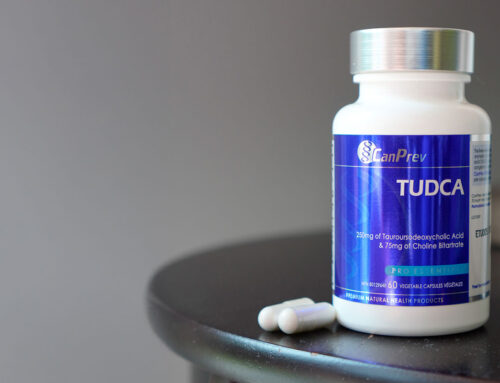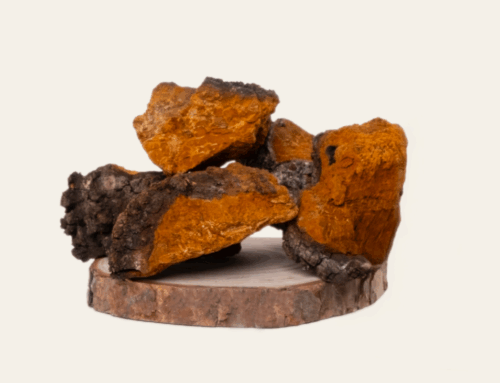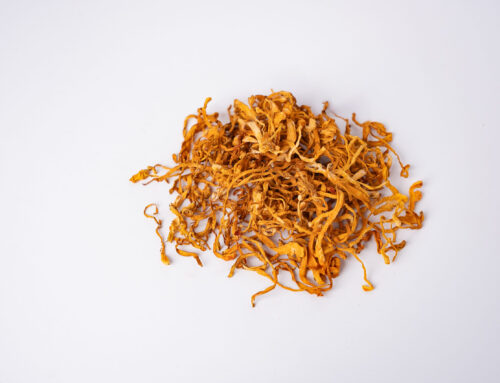For centuries, plants have been used for their therapeutic properties. Quercetin is one of many powerful plant-based bioflavonoids known for immune support, but its benefits extend far beyond that.
What is quercetin?
Quercetin is a flavonol, one of six subclasses of plant pigments called flavonoids which give many fruits, vegetables and flowers their colours. Flavonoids are antioxidants that hunt for free radicals in the body, which can damage cell membranes and affect DNA. These damages affect various systems of the body, including the nervous, cardiovascular, skeletal, respiratory and more. Antioxidants help neutralize free radicals by reducing and preventing the damage they cause.
What are the benefits of quercetin?
Many of its benefits as an antioxidant stem from its anti-inflammatory properties. Inflammation is the root of most diseases, and quercetin is effective in preventing conditions such as atherosclerosis, heart disease, high cholesterol, cancer, allergies, and cognitive impairment.
Chronic inflammation may be hard to detect as you cannot necessarily feel or see it. However, the best approach to prevent any condition related to inflammation includes maintaining a healthy weight, while focusing on a balanced diet, exercising regularly, and getting plenty of sleep.
Prevents free radical damage caused by smoking
Quercetin protects the body against environmental factors that can cause free radicals, particularly smoking. Cigarette tar is a source of free radicals that damage red blood cell membranes, and quercetin can help to protect them from membrane damage. Its antioxidant capacity works to stabilize cell membranes.
Helps ward off age-related neurodegenerative disorders
Neurodegenerative diseases such as Parkinson’s and Alzheimer’s are associated with inflammatory processes in the central nervous system. Quercetin and other flavonoids help prevent age-related neurodegeneration. They also improve cognitive function, learning and memory by protecting cell membranes from free radical damage and inflammation.
Lowers inflammation
As an antioxidant, quercetin has anti-inflammatory properties that inhibit inflammatory enzymes called cyclooxygenase and lipoxygenase. They stimulate the production of prostaglandins which promote inflammation and pain. Prostaglandins are groups of lipids (fats) that are produced in the instance of injury or tissue damage, controlling processes like inflammation, blood flow and blood clots. These anti-inflammatory properties are shown in patients with coronary artery disease as well as arthritis.
Prevents pesky allergy symptoms
Histamine is a chemical released after injury or an allergic response. As a part of the immune system, histamine helps rid the body of allergens that cause irritation. It initiates allergic reaction syndrome such as hives, runny nose, watery eyes, and swelling of the lips and face.
Quercetin’s antioxidant and anti-allergic properties inhibit histamine release, and decrease production of pro-inflammatory molecules such as cytokines, leukotrienes, and interleukin IL-4. It also improves Th1/Th2 levels, cells that stimulate immune responses, while reducing IgE antibody formation.
This nutrient can suppress inflammatory mediators and enzymes such as lipoxygenase, eosinophil and peroxidase. These are all mechanisms that contribute to the anti-inflammatory and immunomodulating properties of quercetin, and can effectively be used to treat bronchitis, asthma responses, allergic rhinitis, and peanut-induced anaphylactic reactions.
For some people, it may also benefit eczema by inhibiting secretion of histamine and other pro-inflammatory substances.
Great for heart health
Diets high in fibre, quercetin and other flavonoids help to lower cholesterol, including lowering LDL cholesterol levels in overweight individuals who are at high risk of heart disease. Its benefits for heart health also include reducing blood pressure in those with hypertension.
Beneficial for cancer prevention
Flavonoids including quercetin have potent anticarcinogenic properties. Individuals who consume more fruits and vegetables tend to have lower risk of certain types of cancer due to their nutrients, including phytochemicals, vitamins and minerals. Quercetin has been shown to inhibit the proliferation of a wide range of cancer cells including colon, brain, liver, prostate, breast, endometrial, ovarian and lung tumours. It causes apoptosis (cell death) to cancer cells, and is a strong antioxidant due to its ability to chelate metals and hunt for oxygen free radicals.
Aids athletic performance
Quercetin can improve physical performance for athletes and support endurance by helping to increase blood flow, which carries oxygen and nutrients through the body, including the muscles and joints. Its anti-inflammatory benefits may also benefit athletes as aerobic exercises elevates free radical production in the muscle, which increases muscle damage and fatigue.
Dietary sources of quercetin
The human body isn’t able to produce quercetin, however, it is considered one of the most abundant antioxidants in our diets. Quercetin is primarily found in fruits and vegetables, with the best sources being:
- Apples
- Citrus fruits
- Onions
- Parsley
- Tomatoes
- Grapes
- Dark cherries
- Blueberries
- Blackberries
- Asparagus
- Green pepper
- Broccoli
- Red leaf lettuce
- Olive oil
- Red wine
- Sage
Many of these foods are also high in other flavonoids that can be found in medicinal botanicals, including Hypericum perforatum (St. John’s wort), Ginkgo biloba, and Sambucus canadensis (elderberry).
Supplementing with quercetin
Quercetin has many health benefits as a flavonoid. Although widely found in plant sources, some individuals may benefit from supplementation. CanPrev’s Quercetin offers a potent dose of 500mg, naturally sourced from the flower of the Japanese pagoda tree to protect against inflammation, support immune cells and assist in tissue repair.
References
- https://www.mountsinai.org/health-library/supplement/quercetin
- https://www.ncbi.nlm.nih.gov/pmc/articles/PMC4808895/
- https://www.ncbi.nlm.nih.gov/pmc/articles/PMC5214562/
- https://pubs.acs.org/doi/10.1021/acsomega.0c01818
- https://academic.oup.com/ajcn/article/74/4/418/4737352
- https://www.heartandstroke.ca/articles/eat-to-lower-your-cholesterol
- https://www.health.harvard.edu/staying-healthy/understanding-acute-and-chronic-inflammation
- https://www.tandfonline.com/doi/full/10.1179/1351000213Y.0000000074
- https://www.ncbi.nlm.nih.gov/pmc/articles/PMC2736626/
- https://www.ncbi.nlm.nih.gov/pmc/articles/PMC3665027/







Leave A Comment